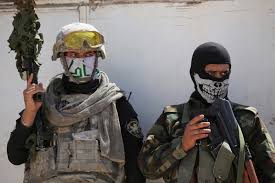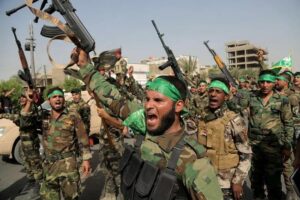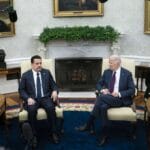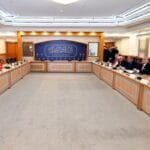 „A military push to recapture Mosul, Iraq’s second largest city, and the rest of Nineveh Province from the Islamic State is expected soon. Unfortunately, even if the campaign is successful, the liberation of Mosul will not stabilize the country. Nor will conquest resolve the underlying conditions that originally fueled the extremist insurgency. Instead, the legacy of the Islamic State, or ISIS, will endure. Its rise and fall have altered the country’s society and politics in irreversible ways that threaten future cycles of conflict. Throughout history, victorious wars have often forged national identities, expanded state power and helped centralize political authority. But the war against the Islamic State is having the opposite effect: fragmentation. In parts of Iraq recaptured from the militants where I’ve traveled, signs of any central authority are nonexistent. Instead, what has emerged from the conflict is a complex patchwork of ethnic, tribal and religious militias that claim fief over particular territories. (…)
„A military push to recapture Mosul, Iraq’s second largest city, and the rest of Nineveh Province from the Islamic State is expected soon. Unfortunately, even if the campaign is successful, the liberation of Mosul will not stabilize the country. Nor will conquest resolve the underlying conditions that originally fueled the extremist insurgency. Instead, the legacy of the Islamic State, or ISIS, will endure. Its rise and fall have altered the country’s society and politics in irreversible ways that threaten future cycles of conflict. Throughout history, victorious wars have often forged national identities, expanded state power and helped centralize political authority. But the war against the Islamic State is having the opposite effect: fragmentation. In parts of Iraq recaptured from the militants where I’ve traveled, signs of any central authority are nonexistent. Instead, what has emerged from the conflict is a complex patchwork of ethnic, tribal and religious militias that claim fief over particular territories. (…)
The Baghdad government’s writ does not apply in most of Iraq. The administration’s weak authority has forced the prime minister, Haider al-Abadi, to rely on dozens of Shiite militias to shore up national security. Mr. Abadi has tried to integrate these forces to bring them under his control, but the process has created parallel command structures within the security apparatus. In practice, the militias answer to a murky network of patronage and loyalties divided among different political parties, religious clerics and external patrons. It’s hard to tell where the militias end and the state begins. The American experience in Iraq has been plagued by a series of false assumptions, misplaced confidence and poor foresight. In the latest manifestation, since 2014, the White House has wrongly prioritized the narrow, short-term military objective of defeating the Islamic State. The push to retake Mosul is not simply a case of the Iraqi Army against the Islamic State; instead, an array of armed groups — each driven by its own parochial interests — are set to wage war there. This alone should give American policy makers pause, because of the threat this situation poses to reconstruction and post-conflict stability. (…)

(Ramzy Mardini: „Don’t Defeat ISIS, Yet“)






